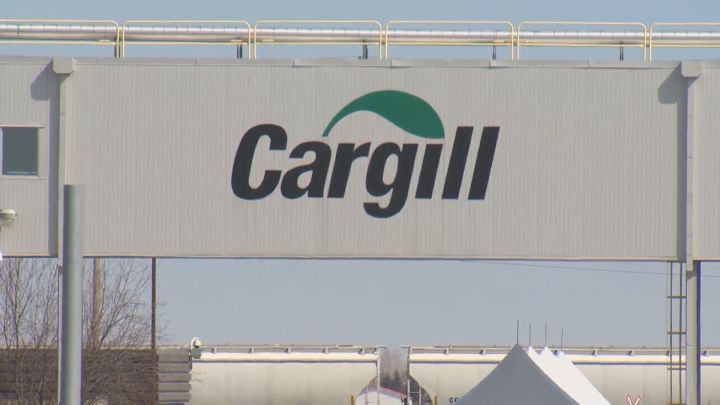By Danielle Edwards
Heidi Petracek
Ryan Van Horne
Published Thursday, August 19, 2021
HALIFAX -- Halifax Regional Police arrested 24 people in connection with a protest on Wednesday against the city's decision to remove a series of homeless encampments.
Those arrested face charges including resisting arrest, mischief, obstruction and assaulting police, Chief Dan Kinsella told reporters Thursday, adding they were released Wednesday evening with a promise to appear in court.
"They were in a very complex and difficult situation and responded to the best of their abilities with what they had under the circumstances," Kinsella said of the officers who were deployed to a lawn outside the old Halifax central library site in the city's downtown.
Groups of peaceful protesters had gathered around two shelters at the downtown site Wednesday morning. One man sat atop a wooden shelter constructed by an advocacy group for the homeless, and a police negotiator tried to talk him down while the crowd was held back by a cordon of officers.
The situation escalated after the man was taken away by police and officers began spraying people with irritants while some protesters threw water bottles at officers and their vehicles, Kinsella said. Some of the protesters were "assaultive," he added.
Supt. Andrew Matthews, lead of the operation, told reporters that officers are expected to justify their use of irritants to control crowds, adding that the force plans to investigate the use of the irritants.
"This was a rapidly evolving and fluid situation," Kinsella said. "Officers were in the process of containing a situation and establishing an operational parameter. This was to allow for the safe removal of temporary dwellings that were in fact illegal."
The police chief said people who were using the shelters were offered housing options but did not confirm if any of the individuals took that offer.
Also on Thursday, the Nova Scotia Policing Policy Working Group (NS PPWG) sent out a news release saying it "strongly condemns" the actions of the Halifax Regional Police on Wednesday when city staff evicted people living in crisis shelters and tents in local parks.
The NS PPWG called on the Board of Police Commissioners to take immediate action and review some of the policing incidents documented by local media, particularly at the old library grounds on Spring Garden Road.
The incidents, which they listed in their news release, include:
demanding that journalists move away from the areas where they were covering the police response, and threatening them with arrest if they did not;
physically interfering with at least one journalist trying to film the events;
using disproportionate and excessive force with protesters;
some police officers removing name tags;
deploying pepper spray indiscriminately in a busy downtown area without clearing the streets first, injuring children as well as adults; and
unnecessarily escalating tensions (putting on riot gear, as one example).
"Some members of the NS PPWG themselves experienced (or witnessed) physical violence by the police, including police officers pushing on people’s breasts," the news release said. "What happened (Wednesday) is a reflection of longstanding and systemic issues with policing in
HRM, including the Municipality’s reliance on police to address complex social needs; excessive force by police; and the militarization of the police."
The NS PPWG said the violence occurred because the city moved in to evict homeless people "with no viable plan in place to provide them with safe housing elsewhere."
The NS PPWG said housing is a human right and said Wednesday's failure "represents a policy failure at multiple levels."
The NS PPWG encouraged governments to take the advice of organizations working in the field and pointed to a recent report of the Canadian Centre for Policy Alternatives, called Keys to a housing secure future for all Nova Scotians.
Later Thursday evening, the union representing the city workers that were ordered to demolish the shelters, said they were "shocked and upset" by the direction given to them by management.
"Our members want the public to know that they would have opposed the removal of the shelters, as they have done previously," says CUPE 108 president Scott Chetwynd.
Outside workers were also directed by management to remove, box, label and store personal belongings.
"This was initiated by management under a shroud of secrecy. Workers and the union were not given advance notice," adds Chetwynd. "Prior to August 18, HRM management had assured our members that a directive to remove shelters would not happen again. So, workers were shocked when they were given these directives again on Wednesday."
Chetwynd said workers were put in harm's way by the city.
"They faced unsafe conditions throughout the day, without adequate training," Chetwynd said. "Many have told us that they’re traumatized by the events and they’re struggling to understand why their employer would insert them in the middle of such a controversial, ill-planned and unsafe situation."
Chetwynd says the union has advised its members of their right to refuse unsafe work and has contacted Halifax CAO Jacques Dube, but the city had not yet responded.
This report by The Canadian Press was first published Aug. 19, 2021.
With files from CTV Atlantic.

Halifax Regional Police Chief Dan Kinsella speaks to media on August 19, 2021, following a protest against the city's decision to remove homeless encampments across the city.
Halifax police chief says force's actions appropriate in face of 'hostile, aggressive' crowd
24 people arrested and charged in protest against city's eviction of homeless people from municipal property

The chief of the Halifax Regional Police defended his officers' actions during Wednesday's protest against the city's eviction of homeless people from public parks and green spaces, saying pepper spray was appropriate in the face of aggressive individuals who were "armed" and organized.
Police Chief Dan Kinsella told a news conference Thursday that officers encountered a large crowd of protesters in front of the former library on Spring Garden Road, where city workers had removed a shelter on a flatbed truck and another was destroyed with a chainsaw.
"Officers ... were faced with a hostile, aggressive, assaultive, protesting crowd that came equipped, organized and well planned to do what they did," Kinsella said.
"The officers had to ensure the protection and safety of everyone around, and they did that using their training."
He said police and municipal staff had already cleared three of the "highest risk" encampments where people were living in tents and shelters in Halifax without incident before moving on to the former Halifax Memorial Library site.
Videos and images from the scene show police with body armour and riot gear pepper spraying some protesters, including at least one child who was in the fray, and using their bicycles to push back the crowds. Some protesters were seen throwing water bottles and milk jugs at police.
Officers were kicked, head-butted and punched, Kinsella said Thursday.
He said a number of the protesters were armed with sensory irritants of their own and projectiles, including some that were thrown at officers. People were seen pouring milk into their eyes to alleviate the burning caused by pepper spray.
Kinsella said police arrested 24 people who now face charges including obstruction of justice, assaulting police, resisting arrest, and mischief. All have been released on promises to appear in court at a later date.
Supt. Andrew Matthews, who was in charge of the deployment of police actions Wednesday, said the officers on scene weighed their options when deciding to use the pepper spray.
Matthews said they "fully expect" the officers who used the irritant to rationalize why they used it.
"At this point in time, I feel there was an appropriate use," he said.
Kinsella encouraged anyone with video or evidence showing police officers acting in an unsafe or questionable manner during the protest to share it with the force's professional standards office.
He said that includes information regarding officers who were not wearing name tags during the protest or those wearing the controversial thin blue line patch, in contravention of policy. Kinsella said the situation is being reviewed.
Coun. Lindell Smith, who represents Halifax Peninsula North and is chair of the board of police commissioners, said he would raise those issues at the next board meeting.
Kinsella also addressed reports that police limited the freedom of journalists who were reporting from the protest. He said one reporter was asked multiple times to stand back from the area where machinery was removing a shelter.
"The reporter dealing with the officer refused to comply to the instruction that was meant to keep them safe," Kinsella said.
When asked about police threatening to arrest journalists as they recorded the events, Kinsella said he didn't know about those situations and suggested any other complaints should be brought forward.
Kinsella said enforcement was taken after months of notices issued to people living in municipal parks or on municipal land that they were breaking a bylaw, and a large spike in calls related to the encampments.
He said those calls included alleged assaults, thefts, indecent acts, liquor offences, break and enters, and threats.
"It is our role to protect the public and other users of municipal properties and residents in nearby communities," Kinsella said. "We cannot also allow … misuse of municipal property to become the norm in our city."
Kinsella echoed the city's position that everyone evicted from tents and shelters Wednesday were offered temporary housing, but he could not confirm whether everyone accepted.
At least one person who was living in a tent told CBC News he was not given a housing option Wednesday. Street outreach workers have said there are not enough hotel rooms, shelter beds or housing for everyone.
In an email, HRM spokesperson Laura Wright said the municipality received over 200 calls through 311 regarding homeless encampments between Aug. 19, 2020, and the same date this year.
"It should be noted that these calls are not necessarily all complaint-based and may include general questions pertaining to homeless encampments," Wright said.

Smith said he and the rest of council knew people might have to be removed from parks, but he was confident in assurances that everyone would at least be offered a place to stay.
The councillor said he's since learned that some people were not approached, and he hopes to help organizations who work with homeless people to find anyone slipping between the cracks.

Smith said the actions of police Wednesday were in response to concerns over the safety of protesters and officers, and suggested the protest detracted attention from the real issue of homelessness.
"What happened yesterday wasn't really about folks who would have been in that shelter," he said.
"It was hard to see so much anger with the police having to be forceful on individuals and spray irritants ... really forgetting there was individuals who are on the street right now without a place to be."
















